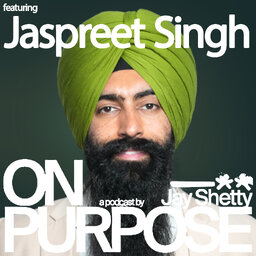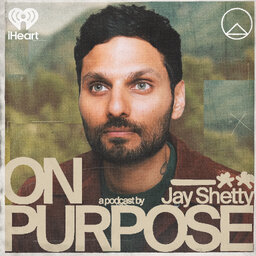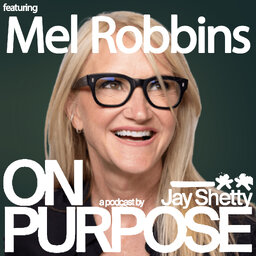Dr. Darshan Shah ON: 3 Step Process to Reset Your Gut Health and Reduce Inflammation & Why Sitting is Increasing Your Mortality Rate by 10%
How do you reset your gut health?
How can you reduce inflammation in your body?
Today, we welcome Dr. Darshan Shah. Dr. Shah is a health and wellness specialist, board certified surgeon, published author, entrepreneur, and founder of Next Health, the world's first and largest health optimization and longevity clinic. With expertise in all body systems, Dr. Shah has performed over 15, 000 surgical procedures, including trauma surgery, general surgery, and reconstructive procedures. As a health and wellness specialist, he has advised thousands of patients on how to optimize their well being and extend their lifespan.
Dr. Shah talks about the three-step process that empowers you to take charge of your health, examine the changing landscape of our food intake, and learn four essential ways to eat right. He emphasizes the importance of plant-based protein sources and the incredible benefits of vegetables, and dives deep into consequences of low vitamin D levels.
The conversation takes a turn towards the power of social activity and how to break free from sedentary behavior. Uncover valuable insights on escaping the clutches of perfectionism and how to prepare for old age. Dr. Shah sheds light on the benefits of sleep tracking and shares best practices to ensure a good night's rest.
Together, let's gain a deeper understanding of how inflammation affects your gut health, learn how to take care of your heart, and explore the technological evolution of cancer testing.
In this interview, you’ll learn:
How to eat healthy
How to change your diet effectively
How to exercise properly
How to be more active at home
The benefits of good sleep
How to take care of your gut
How to take care of your body
There is so much to learn and so much information to process, but this conversation will surely lead you to a better, healthier lifestyle.
With Love and Gratitude,
Jay Shetty
What We Discuss:
00:00 Intro
03:06 Why Was There a Need to Build Next Health?
09:11 The Three-Step Process to Stay Healthy
13:19 What Has Changed With Our Food Intake?
16:16 4 Ways to Eat Right
24:36 Plant-Based Sources of Protein
26:11 How Vegetables Can Greatly Help Your Body
30:44 This Happens When Your Vitamin D Level is Low
34:12 Know What is the Blood Work Optimal Range
36:51 You Need to Invest in Social Activity
39:19 How to Break Sedentary Behavior?
46:46 How Do You Get Out of the Perfectionist Mentality?
48:32 How Do You Prepare for Old Age?
50:21 The Benefits of Sleep Tracking
57:24 Best Practices to Help You Sleep Through the Night
01:03:52 Inflammation Affects Your Gut Health
01:09:10 How to Take Care of Your Heart
01:14:23 Technological Evolution of Testing Cancer
01:18:24 How Do We Prevent Cancer?
01:22:28 Conclusion
Episode Resources:
Darshan Shah | Website
Darshan Shah | Instagram
Darshan Shah | LinkedIn
Darshan Shah | Facebook
Darshan Shah | YouTube
In 1 playlist(s)
On Purpose with Jay Shetty
My name is Jay Shetty, and my purpose is to make wisdom go viral. I’m fortunate to have fascinating …Social links
Follow podcast
Recent clips

Jaspreet Singh: Why Most People Stay Broke (Follow THIS 7-Step System to FINALLY Stop Living Paycheck-to-Paycheck!)
1:19:03

Feel Stuck, Confused, or Behind? Use THIS Blueprint and Completely Transform Your Life in ONE Year!
23:16

MEL ROBBINS: How to Stop People-Pleasing Without Feeling Guilty (Follow THIS Simple Rule to Set Boundaries and Stop Putting Yourself Last!)
1:15:47
 On Purpose with Jay Shetty
On Purpose with Jay Shetty